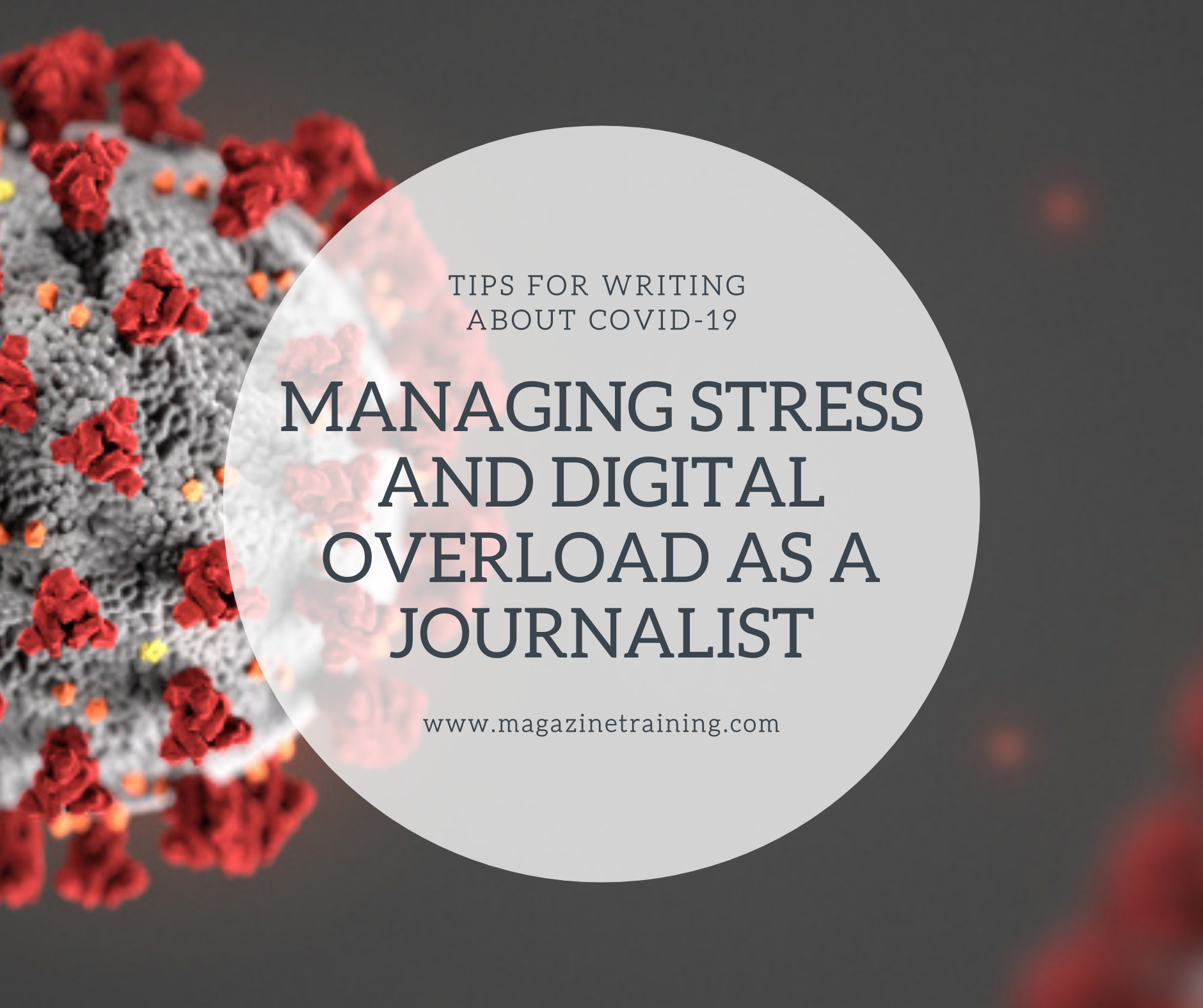
Technology is an essential part of a journalist’s job, but it can also be a major stressor, especially as reporters juggle the added pressures of the COVID-19 pandemic.
“We haven’t had a time like this in history where we have so much stimulus for so long, and unprompted,” said Mar Cabra, an Acumen fellow candidate and a Pulitzer Prize-winning journalist. “We get all these stimuluses and all these notifications popping at us. And that is actually changing the way our brains are operating, because our brains are not designed for so much stimulus so fast.”
Cabra and Kim Brice, a personal leadership coach who specializes in mindfulness-based stress reduction and worked as a media freedom activist, led journalists through a training Tuesday that highlighted specific techniques they can use to deal with stress in a healthier way. It was the first session of The Self-Investigation, a program organized by Cabra and Brice with support from the International Center for Journalists (ICFJ), Open News and the Online News Association (ONA). They talked to journalists from different parts of the globe who shared similar challenges, such as difficulties working from home, digital overload, increased anxiousness and job insecurity. “We only get one body,” said Brice during the webinar. “And our body takes us through life. It is your body that allows you to do everything that you’re able to do, that allows you to feel everything you’re able to feel every second of the day from the minute you’re born till the minute you die. And it’s the only body we ever get. So, it’s worth learning to listen to it.”
Cabra, former data editor at the International Consortium of Investigative Journalist, was part of the Pulitzer Prize-winning team for the Panama Papers. Despite working with a great team, with journalists all over the world, she felt very unhappy inside at some point.
“After a year or so, after publishing the Panama Papers, I burnt out and I saw no other option than quitting my job to find what made me happy,” said Cabra, who worked with Brice to recover from the burnout.
She learned that technology has a bigger effect on us than what is commonly known. Many people, for example, experience “screen apnea,” while using computers or phones. Their breathing will become more shallow or even stop, she said.
Four skills for managing stress
Brice said journalists already employ in their jobs the expertise they need for stress management: fact-gathering, practicing skills, a curious and open mindset, and motivation.
To the first point, self-awareness is key, Brice said. If you don’t know what you are doing, then you won’t know what to change. During half of our waking hours, we are on autopilot. We have many tendencies that we are mostly unaware of.
“It’s worth learning to notice in real time when those [automatic reactions] are coming up, especially if they don’t serve you,” she said. “So, you might come to a place of choice and do something different.”
It is also important to pay attention to what you do, because “we become what we practice.” Brice says that journalists need to notice the behaviors they get stuck in during stressful situations and learn to practice a way of responding that is more supportive.
It’s essential to be curious and open about yourself as well, so you can exercise self-compassion. In a study done on Iraq and Afghanistan war veterans, soldiers who were more self-compassionate were less likely to suffer post-traumatic stress disorder than the soldiers who had no or little self-compassion, Brice said. There is a direct link between self-compassion and physical, mental and emotional health.
The last skill needed is motivation. A journalist is not going to succeed in managing digital overload and stress unless they are motivated to make their health as important as their work.
“Deciding for yourself: Why is it worth it to me?” Brice said. “To practice for the next month, if you’re going to come along on the journey on your own or with us, why is it? What is really important to me that I’d like to turn around? Because it’s not only helpful to me, but helpful to what I do in the world and also will be helpful in all of my relationships.”
Dealing with digital overload
Cabra encouraged journalists to think about how to limit their interactions with technology, so that they could regain control of their time and attention. One way to do this is to decide what notifications are essential and which ones are not. Another is only checking email at designated times throughout the day.
by Donethe Cyprien, International Journalists’ Network
Related posts
Magazine Training International’s mission is to encourage, strengthen, and provide training and resources to Christian magazine publishers as they seek to build the church and reach their societies for Christ.

